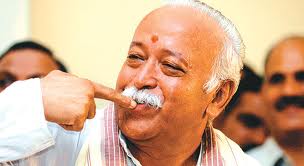 New Delhi, Jun 12: A day after senior BJP leader L K Advani withdrew his resignation following the RSS chief's call to him, the Sangh founthead today said that it is not interfering or managing the affairs of the right-wing party.
New Delhi, Jun 12: A day after senior BJP leader L K Advani withdrew his resignation following the RSS chief's call to him, the Sangh founthead today said that it is not interfering or managing the affairs of the right-wing party."When a senior person of the stature of L K Advani needed to be given some advice, naturally some senior people in the country and society will give him advice. Not just RSS chief Mohan Bhagwat but also many others had advised him to reconsider his decision," RSS leader Ram Madhav said.
Advani, who had quit key party posts in the wake of Gujarat Chief Minister Narendra Modi's elevation as head of the BJP Election Campaign Committee, withdrew it after Bhagwat persuaded him on the phone to do so. BJP and RSS have reportedly assured Advani that he will be consulted on all big decisions of the party.
BJP President Rajnath Singh had said yesterday that Advani changed his decision after Bhagwat convinced him that the concerns raised by him in his resignation letter will be looked into.
Insisting that Bhagwat and others merely gave suggestions to Advani, Madhav said, "Do you mean to say that everybody who was giving advice to Advani was interfering in affairs of BJP? RSS does not and shall never do any micro-management of the affairs of BJP."
The crisis in BJP blew over after Advani took back his resignation.






Comments
Add new comment